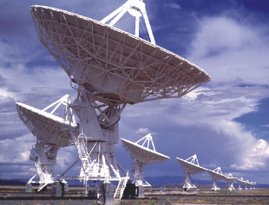
Sunday, May 10, 2009
The value in knowing that which is wrong
Many people become instantly exasperated with that which is wrong.
But there is enormous value in know what is wrong and understanding why it is wrong.
There is enormous value in knowing what is likely not to work because that allows you to focus on that which is likely to work.
There is enormous value in understanding why something thought to be true is in fact wrong.
As they used to say in biochemistry classes 30 years ago: Half of what we are teaching you is wrong. The problem is, we don't know which half.
Simple examples of this are eliminations like in an SAT math question.
11 divided by 6 equals approximately
A. 8.0
B. 10.0
C. 2.1
D. 1.8
E. 0.9
A and B are clearly too large; E is clearly too small.
That leaves C and D.
Since 11/6 cannot be more than 2 since 12/6 would be 2, C is also eliminated, leaving D, without having to perform any calculation.
So, being able to determine what are likely to be blind alleys can be tremendously useful.
It is also crucial to determine why people make errors. See "choice blindness" and "change blindness" below. There is also the I-don't-like-it-therefore-it-is-a-lie problem.
In many cases, it is as important to understand what is wrong and why it is wrong as it is to understand what is correct and why it is correct. The former is, however, woefully neglected. Since researchers often do not publish negative results, other researchers waste huge amounts of time redoing experiments and going down the same blind alleys over and over again.
But there is enormous value in know what is wrong and understanding why it is wrong.
There is enormous value in knowing what is likely not to work because that allows you to focus on that which is likely to work.
There is enormous value in understanding why something thought to be true is in fact wrong.
As they used to say in biochemistry classes 30 years ago: Half of what we are teaching you is wrong. The problem is, we don't know which half.
Simple examples of this are eliminations like in an SAT math question.
11 divided by 6 equals approximately
A. 8.0
B. 10.0
C. 2.1
D. 1.8
E. 0.9
A and B are clearly too large; E is clearly too small.
That leaves C and D.
Since 11/6 cannot be more than 2 since 12/6 would be 2, C is also eliminated, leaving D, without having to perform any calculation.
So, being able to determine what are likely to be blind alleys can be tremendously useful.
It is also crucial to determine why people make errors. See "choice blindness" and "change blindness" below. There is also the I-don't-like-it-therefore-it-is-a-lie problem.
In many cases, it is as important to understand what is wrong and why it is wrong as it is to understand what is correct and why it is correct. The former is, however, woefully neglected. Since researchers often do not publish negative results, other researchers waste huge amounts of time redoing experiments and going down the same blind alleys over and over again.
Subscribe to:
Post Comments (Atom)

No comments:
Post a Comment